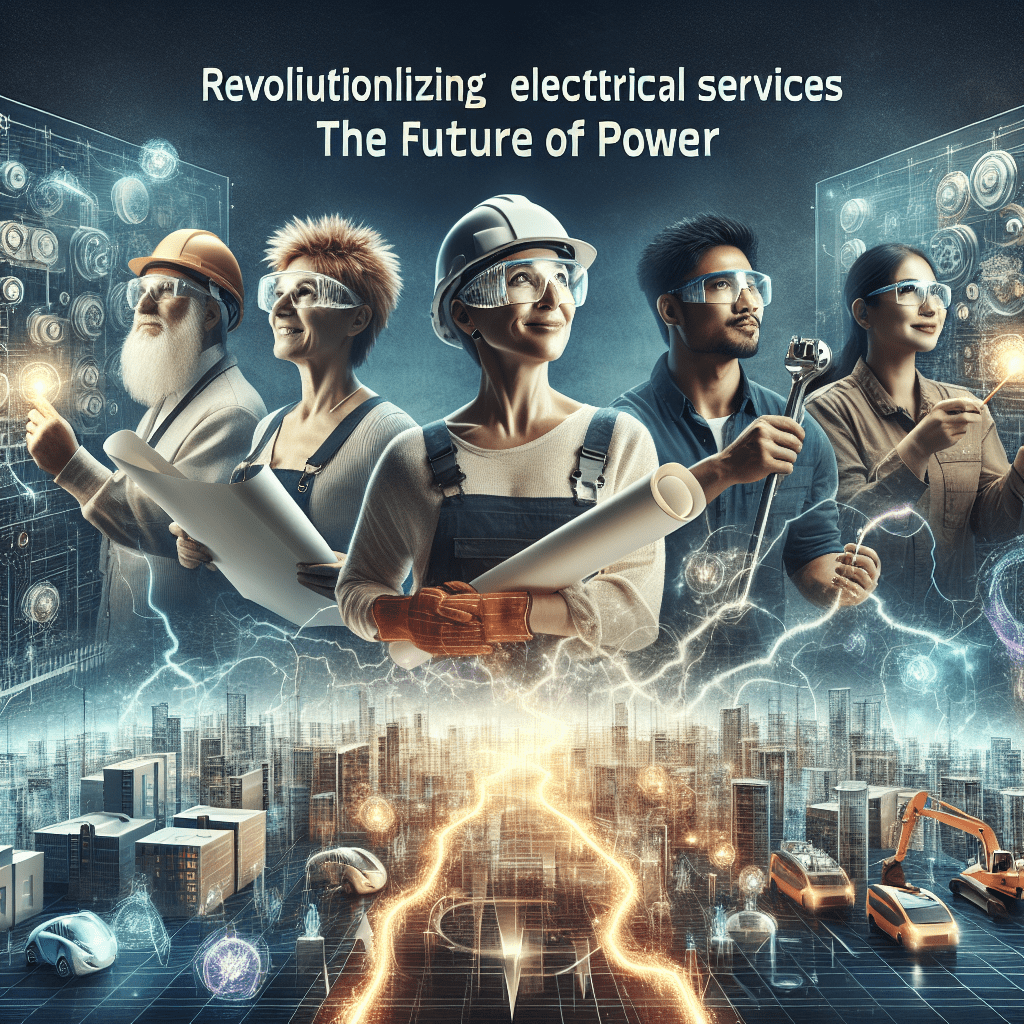Electricity is a fundamental part of modern society, powering everything from our homes and businesses to our vehicles and electronic devices. As technology continues to advance at a rapid pace, the way we generate, distribute, and consume electricity is also evolving. In this article, we will explore the future of electrical services and how they are being revolutionized to meet the demands of the 21st century.
The Rise of Renewable Energy
One of the most significant trends in the electrical services industry is the shift towards renewable energy sources. As concerns about climate change and environmental sustainability grow, more and more consumers are looking for ways to reduce their carbon footprint. This has led to a surge in the adoption of solar, wind, and other renewable energy technologies.
Advancements in battery storage technology have also played a key role in this shift. Batteries allow excess energy generated by renewable sources to be stored for later use, helping to smooth out the intermittent nature of solar and wind power. This has made renewable energy more reliable and cost-effective than ever before.
The Smart Grid Revolution
Another major development in the electrical services industry is the implementation of smart grid technology. Smart grids use advanced sensors, meters, and communication systems to monitor and control the flow of electricity in real time. This allows utilities to better manage their infrastructure, improve energy efficiency, and respond more quickly to outages and other issues.
Smart grids also enable consumers to have more control over their energy usage. With smart meters and home automation systems, homeowners can monitor their energy consumption, adjust their usage patterns, and even sell excess energy back to the grid. This not only helps to reduce energy costs but also encourages greater adoption of renewable energy sources.
The Internet of Things (IoT) and Energy Management
As more devices and appliances become connected to the internet, the potential for energy management and optimization continues to grow. The Internet of Things (IoT) allows devices to communicate with each other and with central systems, enabling more efficient use of energy resources.
For example, smart thermostats can learn a homeowner’s preferences and adjust the temperature of their home accordingly. Smart appliances can run during off-peak hours when electricity is cheaper. And electric vehicles can communicate with the grid to charge when renewable energy sources are most abundant. All of these innovations help to reduce energy waste and lower costs for consumers.
Conclusion
The future of electrical services is bright, with exciting advancements in renewable energy, smart grid technology, and IoT integration revolutionizing the way we generate, distribute, and consume power. By embracing these innovations, we can create a more sustainable and efficient energy system that benefits both consumers and the environment.
FAQs
Q: What are the benefits of renewable energy?
A: Renewable energy sources like solar and wind power are clean, sustainable, and abundant. By using these sources, we can reduce our dependence on fossil fuels and lower our carbon footprint.
Q: How do smart grids work?
A: Smart grids use advanced technology to monitor and control the flow of electricity in real time. They allow utilities to improve efficiency, reduce outages, and empower consumers to manage their energy usage.
TIP:
When considering electrical services for your home or business, be sure to look for providers that offer renewable energy options, smart grid technology, and IoT integration. By choosing forward-thinking companies, you can help shape the future of power and contribute to a more sustainable energy system.
#Revolutionizing #Electrical #Services #Future #Power

